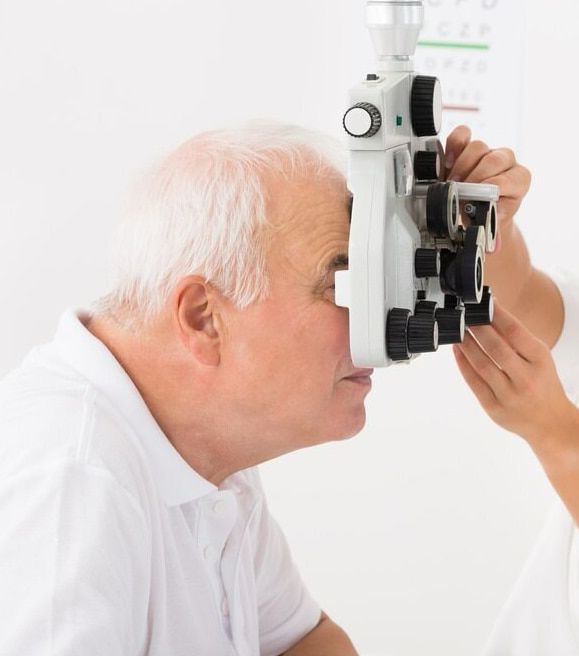Eye Test in Lake Macquarie
A Closer Look at Eye Testing
Clear vision plays a key role in daily life, from reading and driving to recognising faces and enjoying the world around you. Routine eye testing helps assess vision changes and provides valuable insights into overall eye health.
At Ian Emslie Optometrist in Lake Macquarie, eye tests are available to assess visual clarity, depth perception, peripheral vision, and other factors that may influence eyesight. These assessments can help identify refractive errors such as nearsightedness, farsightedness, and astigmatism.
For those with concerns about eye health, diagnostic tools are used to evaluate potential changes that may be linked to conditions such as glaucoma or macular degeneration. Based on assessment results, tailored recommendations can be provided to support ongoing vision care.
Prioritise your eye health today. Contact
02 4947 4577 to book your eye test at our Lake Macquarie clinic.
Eye Health Monitoring
Regular eye assessments can provide valuable insights into changes in vision and eye health. These evaluations may help in understanding concerns such as glaucoma.
Tailored Vision Care for All Ages
Services are available for children, adults, and older individuals, offering guidance on vision needs at different life stages with personalised recommendations.
Diagnostic Technology
Modern tools assist in assessing various aspects of eye health, providing detailed information that supports personalised vision care and ongoing management of concerns.
Frequently Asked Questions
Why are routine eye tests important?
Routine eye tests can help detect vision problems like nearsightedness and astigmatism, as well as conditions like glaucoma and cataracts, often before symptoms appear. They can also reveal health issues like diabetes or high blood pressure. Regular testing is designed to maintain clear vision and overall eye health.
What happens during an eye test?
An eye test includes checking visual clarity, refraction to determine if you need glasses, and peripheral vision testing. It also involves examining eye health for conditions like glaucoma or macular degeneration. These quick, non-invasive checks can provide valuable insights into your vision and eye health.
How often should you get an eye test?
Most adults should have an eye test every 1–2 years. Children, older adults, or those with conditions like diabetes may need more frequent testing. Regular exams can help detect vision changes or eye health issues early, supporting clear vision and long-term eye health.
Why Regular Eye Tests Are Vital
Routine eye tests provide valuable insights into vision and eye health, helping to identify changes that may indicate common conditions such as glaucoma, diabetic-related eye concerns, or macular degeneration. Many of these conditions develop gradually and may not cause noticeable symptoms in the early stages.
Regular assessments can help track changes in vision over time, offering an opportunity for timely management and personalised care recommendations.
Eye tests are beneficial for individuals of all ages. For children, they can help assess vision development and identify concerns that may impact learning. Older adults may experience age-related vision changes, making regular assessments important for monitoring ongoing eye health.
People with conditions such as
diabetes or high blood pressure may also require routine eye checks to monitor any effects on vision. Scheduling regular assessments supports long-term eye health and provides useful information to help maintain visual clarity.
What Happens During an Eye Test?
An eye test involves a series of evaluations designed to assess your vision and the health of your eyes. Visual acuity testing measures how well you see at various distances, while refraction testing determines whether you need corrective lenses.
Peripheral vision and depth perception tests assess your ability to detect objects to the side and judge distances accurately—skills essential for daily activities like driving and sports. In addition to these vision checks, your eye health will be thoroughly assessed.
This includes examining your retina, optic nerve, and other structures of the eye for signs of conditions like glaucoma, cataracts, or retinal disorders. Advanced imaging technology may be used to capture detailed images of your eyes, providing deeper insights into their overall health.
These tests are non-invasive and straightforward, yet they can provide crucial information about your eyes. Regular eye tests not only help maintain clear vision but also contribute to early detection of conditions that could impact your quality of life. By scheduling routine tests, you’re taking an important step toward proactive eye care and long-term visual health.













